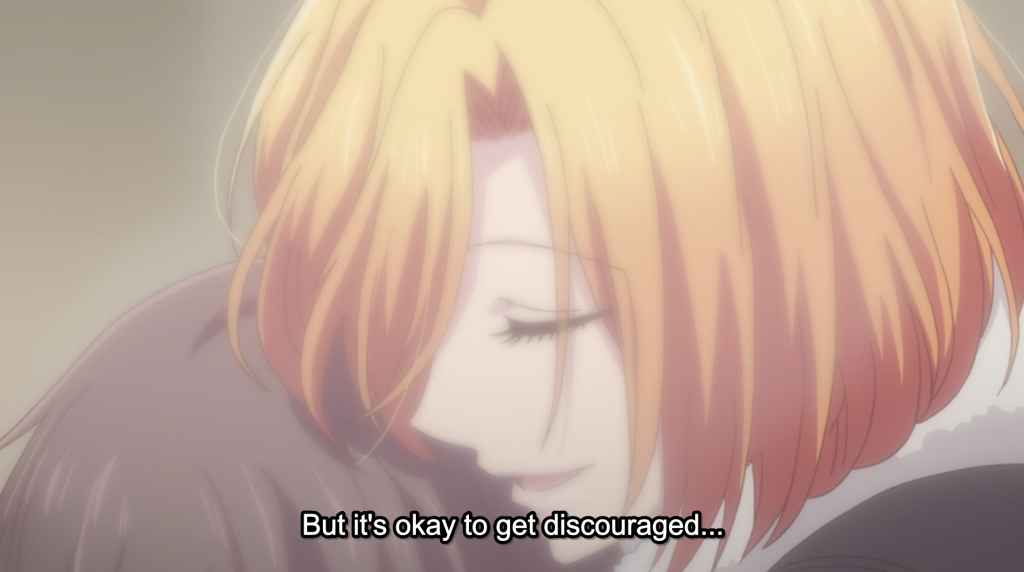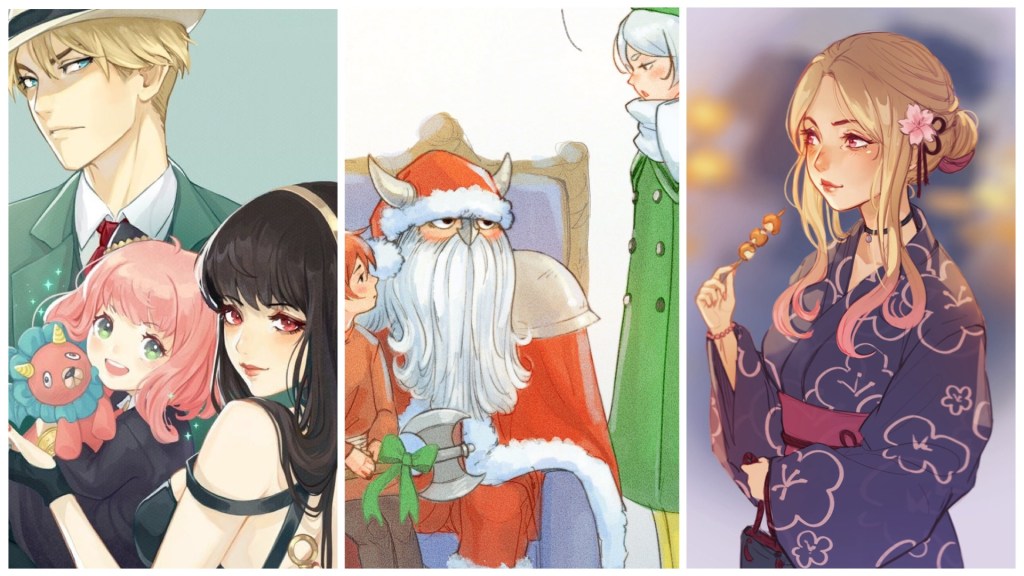Between school, work, and housekeeping, Tohru Honda is extremely busy. She’s also surrounded by friends and acquaintances that adore her, but even with so much filling her daily life, Tohru lacks intimate connections, those that are close enough to feel a part of her. The only person who knew her in and out, and the only one to whom she could completely be herself, less desirable aspects and all, has passed away. For as many meaningful relationships as she has, without her mother, Tohru is surprisingly quite alone.
Still, relying on her unrelenting optimism, Tohru is able to keep sadness at bay for the most part, but in episode five of Fruits Basket, she’s put in a situation where everything comes crumbling down. She is left wondering what to do and doesn’t have anyone to whom she feels she can turn. With renovations to her home mostly complete, Tohru leaves the Somas and moves back in with her grandfather and his relatives. We had reason to believe they might be awful people, but it’s confirmed once Tohru moves back. Hearing her mom’s name denigrated with condescension (“Like mother, like daughter”) and approached by a relative in an uncomfortable and creepy manner, Tohru falls apart. A lie she has long struggled with returns to her, shouting, “You’re not worthy.”
Tohru’s selflessness and incredible sense of empathy make her extremely likeable for those who are willing to see her—potential rivals, angry cat boys, and delinquent-type girls all gather to her because of how loving she is. But as she pours so much of herself out, there’s little left for her. Her mom, realizing that, shares the advice that it’s okay to be selfish; it’s okay to look out for yourself. Though Tohru values her mom’s words so dearly, these are a few that she struggles with, though they are perhaps some of those she needs to believe in most, to understand that she is worthy of loving herself. And in this episode, once Tohru does believe these words, a new world is opened to her. She tells “real family,” what she desires, grasping onto her mother’s teaching and explaining that she wants to be with the Somas. That’s all that Yuki and Kyo need to hear; once Tohru admits what she wants, once she accepts that she is worthy, the boys are able to react, ferociously and unashamedly protecting the girl they’ve come to love, and escorting her away from those that unjustifiably hurt her and to a place full of those that see her for who she is.
It’s an unexpected change that occurs. As Tohru loves herself, she’s able to experience a greater love from others. By no means is Tohru perfect, even though we might be tempted to paint her that way—her struggles with being “selfish” show as much—and still, Yuki and Kyo value her enough to work together, to be uncomfortable, to act on emotions that neither really understands. And as that happens, relationships deepen, and a new family forms, with family members that want to build bonds as intimate as that which Tohru had with her mom.
Loneliness has started to disappear—it only took something more deeply rooted to disappear first: the notion that Tohru lacks worth, a lie that can infect anyone— even the most optimistic and hopeful among us.
—
Fruits Basket can be streamed through Crunchyroll.
- First Impression: Jujutsu Kaisen Season 3 - 01.08.2026
- First Impression: The Darwin Incident - 01.07.2026
- First Impression: Kunon the Sorcerer Can See - 01.05.2026





I dunno if it’s just me, but a lot of people say Tohru should be a little more selfish, yet I really don’t think “selfish” would be the right word to use, given what we’ve seen of her and her wants.
It’s okay to “think of yourself” is perhaps a better way to think of it, because yeah, selfish carries a heavier connotation than what describes how Tohru is acting.
I can be selfish sometimes
I know you guys think that I’m not selfish
We’re all selfish to one extent or another, Fiona, so I’m actually not surprised!
The moment just before grandpa’s slap — think about how that had to feel for Tooru. It was almost like everything she’d ever loved, everything that had ever been important to her, had been angrily stripped away, and she was left alone.
For her sake, I’m glad it was over quickly — that had to be crushingly painful.
On the other hand, it looked as if she was just going to keep going. She wasn’t going to lash out. She was going to be true to her nature, as best as she understood it in that moment.
That instant of maximum pain/most honest reaction is what all drama strives for.
You’ve read The Screwtape Letters, haven’t you? I last read it probably 30 years ago, yet this quote is as clear to me as the day I first read it:
“Be not deceived, Wormwood, our cause is never more in jeopardy than when a human, no longer desiring but still intending to do our Enemy’s will, looks round upon a universe in which every trace of Him seems to have vanished, and asks why he has been forsaken, and still obeys.”
In the instant before grandpa’s slap saved her, I remembered that quote.
Thank you for sharing the quote—I actually haven’t read Screwtape Letters! I own it and have heard it quoted or explained so often, but haven’t gotten to it! But yep, that’s very apt, and in a way I hadn’t considered before you mentioned it.
Thank you for your amazing insight on Tohru’s character and this episode overall! I would like to share with you my thoughts on the episode as well! I hope you enjoy it 🙂 https://christinescinemacorner.wordpress.com/2019/05/09/fruits-basket-2019-ep-5-theres-no-place-like-home/
[…] Beneath the Tangles: Fruits Basket Episode 5: Lonely and Unworthy […]
[…] too broad, what’s your favorite blog post in the last month?My favorite post has got to be from Between the Tangles for Fruits Basket Ep. 5. It’s such a great analysis to one of the most tender moments that happen in the series. I […]
[…] Matthew, the son of Alpheus (Mark 2:14) looked, at first, more like a Majime than a Kōhei when it came to the project of evangelizing Israel. He was, after all, one of the hated tax collectors who served the Romans and who were considered to be as disreputable as the thieves and prostitutes they were often grouped with. On top of that, he came from the backward region of Galilee. But Our Lord chose Him–the despised, the unworthy. […]